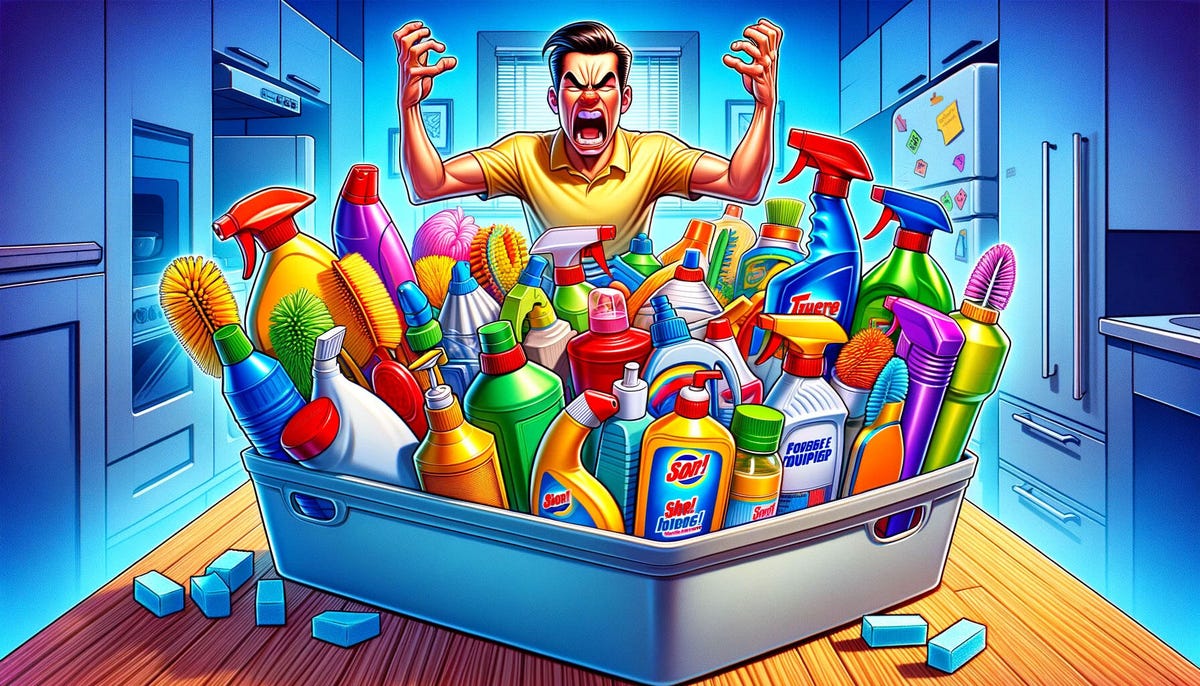Developer Offer
Try ImaginePro API with 50 Free Credits
Build and ship AI-powered visuals with Midjourney, Flux, and more — free credits refresh every month.
Fixing Common AI Image Generation Flaws
While AI creative software has advanced rapidly, even top-tier tools can produce bizarre, creepy, or hilariously bad images. I've spent countless hours testing platforms like Midjourney, Stable Diffusion, and ChatGPT's DALL-E 3, and I've noticed clear trends in the types of mistakes they make.
Despite constant updates, there are some things AI image generators just can't get right on the first try. Some services offer editing tools, and you should always use them. But when those tools fall short, you need another approach. Based on my experience, here are my tried-and-true tips for tweaking your prompts and settings to fix common AI image errors.
Human Faces and Expressions
AI generators frequently struggle with accurate facial expressions. Distorted eyes, teeth, and eyebrows are often the biggest giveaways that an image is AI-generated. The results can be funny but are completely unusable for any serious project. For example, a group photo might show people with vampire teeth or bizarre hair.

Even with non-realistic characters, generators can over-amplify emotions. A prompt asking for an angry person might produce a result that is far too dramatic and exaggerated. Even the best programs can fail and produce these wonky results.

How to fix it: Try asking the service to render fewer people to reduce the chance of errors. Use any available post-generation editing tools to select and regenerate specific parts of the image that need fixing. You can also tone down your prompts by using a milder adjective, like "angry" instead of "enraged," to guide the AI more accurately.
Iconic Characters and Recognizable Logos
For legal and technical reasons, AI image generators rarely produce accurate logos, trademarks, or well-known characters. Companies are concerned about their intellectual property being used by AI services. Additionally, if a specific logo or brand isn't in the generator's training data, it won't be able to understand your request.

There have been some recent exceptions, such as new features on the Google Pixel 9 and some paying X users reporting that Grok can create realistic-looking characters. However, these are not widespread, and the results still aren't perfect.
How to fix it: This is one issue you generally can't fix directly. The upside is you'll avoid potential copyright infringement lawsuits. If you encounter this problem, rethink your concept. Ask yourself if you can convey the same idea without a specific logo. For instance, instead of the TikTok logo, could you just show a phone playing a vertical video?
Overlapping and Complex Elements
Sometimes, a prompt with too many overlapping or complex elements can stump a generator. Even the most advanced AI programs can fail here. For example, an image of a beautiful library might be ruined by a rolling ladder that simply vanishes halfway up the bookshelf.

Similarly, a photorealistic image might look fine at first glance, but a closer look reveals impossible details. A cookbook might have nonsensical text or be rendered with two spines and three sections. These small flaws can make an otherwise great image completely unusable.

How to fix it: Simplify your prompt or use post-generation editing tools to isolate and fix the problem area. Changing the desired aesthetic can also help, as these issues are more common in photorealistic images. If your service has a tool for editing specific areas, use it to select the flawed section and ask the generator to remove or replace its contents.
Over-Editing and Hallucinations
A great AI image generator not only produces a clean image but also gives you the tools to fix the inevitable errors. However, sometimes editing can make things worse. In one Midjourney example, after several rounds of edits on a soccer team celebration, a bizarre, unidentifiable blob appeared where a player should be. At a certain point, the AI seems to lose context.

How to fix it: When editing AI images, less is sometimes more. Don't be afraid to scrap your current attempt and start over with a fresh, more refined prompt. Addressing potential issues in the initial prompt can save you from trying to fix major flaws later on.
The Human Touch is Still Essential
AI companies are constantly working to eliminate these issues, but for now, imperfect images remind us that this technology is not flawless. It still requires a human eye and a guiding hand to achieve the best results.

As a final reminder, it's a best practice to credit or acknowledge when an image is AI-generated. As these images become more realistic, transparency is more important than ever to distinguish AI art from other media.
Compare Plans & Pricing
Find the plan that matches your workload and unlock full access to ImaginePro.
| Plan | Price | Highlights |
|---|---|---|
| Standard | $8 / month |
|
| Premium | $20 / month |
|
Need custom terms? Talk to us to tailor credits, rate limits, or deployment options.
View All Pricing Details

